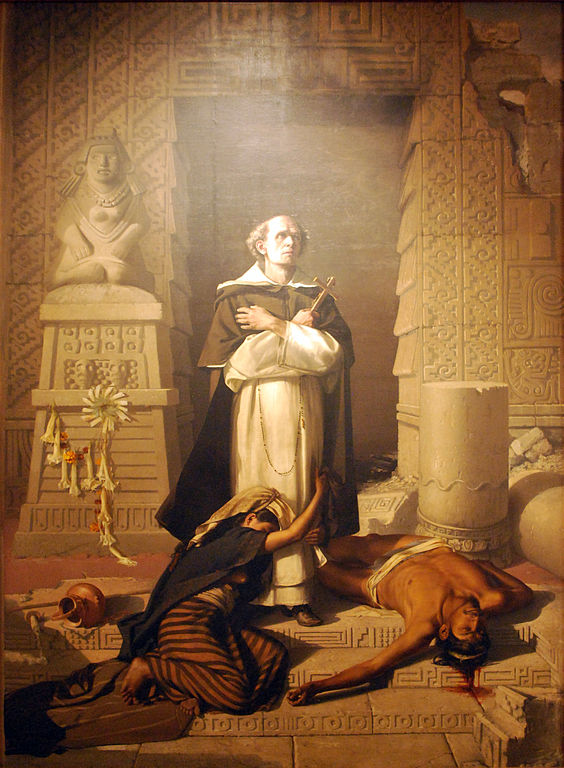One of the most influential figures in the history of Latin America, the Spanish priest and historian Bartolomé de Las Casas became known as the “Apostle of the Indians” for his impassioned and relentless moral condemnations of the excesses of violence and cruelty perpetrated by Spanish conquistadores and encomenderos against the native inhabitants of the Americas.
His book, The Devastation of the Indies: A Brief Account, first published in 1552, caused a sensation across Spain and at the highest levels of church and state. Translated into many languages, it also formed an important component of the “Black Legend” of Spanish atrocities, a perspective that continues to hold enormous sway in considerations of the Spanish impact on the Americas. An indefatigable writer and activist, he continued writing, publishing, and speaking in favor of Indian rights from 1514 until his death in 1566.
His writings were an important element of later Enlightenment discourses on the universality of human rights and continue to resonate among liberation theologians, human rights activists, and indigenous rights activists across Latin America more than 450 years after his “brief account” was first published.
  |
Born in Seville in 1484, son of a well-to-do merchant, Las Casas first came to the New World in 1502, at age 18, in the company of his father and some 2,500 other adventurers in the fleet of Nicolás de Ovando. Around 1506–07, he returned to Europe, was ordained a deacon in Rome, and returned to the Indies, where he was granted an encomienda.
In 1512, he became the first priest ordained in the Americas. Over the next two years, an encomendero himself and eyewitness to the forced labor, enslavement, and violence that characterized the conquest of the Caribbean, he gradually came to an understanding of Spanish actions that diverged radically from that of the vast majority of his countrymen.
His first public condemnation of Spanish excesses was in a Pentecost Sunday sermon in 1514. Freeing his own Indians, henceforth he preached incessantly about the evils of encomienda and other forms of forced labor and violence, making many enemies in the process.
 |
| Bartolomé de Las Casas depicted as Indian savior |
In 1520, King Charles granted him an official hearing to expound his views and defend himself against his many detractors. A handful of other ecclesiastics, most notably Antonio de Montesinos and Juan Quevedo, had been advancing similar arguments.
The king sympathized with Las Casas’s position and decreed that the Indies would henceforth be ruled without recourse to force of arms—an unenforceable edict that was largely ignored. After a failed attempt to establish an economically self-sustaining Indian commune in Venezuela, in 1522 Las Casas became a Dominican monk.
Over the next four decades, he wrote prolifically and became an obsessive collector of documents that later proved of inestimable value to scholars. He was instrumental in persuading the king to issue the New Laws of 1542, which placed severe restrictions on encomienda, sparked furious resistance by encomenderos across the empire, and were repealed in 1545–46.
   |
In 1544, he was appointed bishop of Chiapas (Mexico), where he continued his work on behalf of the Indians. Three years later, in response to mounting opposition to the radical bishop, the Council of the Indies recalled him to Spain.
In 1550, came one of the most memorable and important public debates in early modern Europe, on the question of the morality of Spain’s actions in the Americas. Pitting two intellectual giants—Las Casas versus the eminent humanist Juan Ginés de Sepúlveda, who argued from Aristotelian premises that Indians were “natural slaves” and that Spanish actions were therefore just and appropriate—the great debate of Vallodolid failed to resolve the question, even though most council members sided with Las Casas.
In the coming years, he wrote many other works of enduring historical importance, most notably his Brief Account (1552), Apologética historia, and Historia de las Indias. He continued denouncing the institution of encomienda and Spanish cruelties and championing Indian rights until his death in July 1566. His body was interred at Our Lady of Atocha in Madrid.
